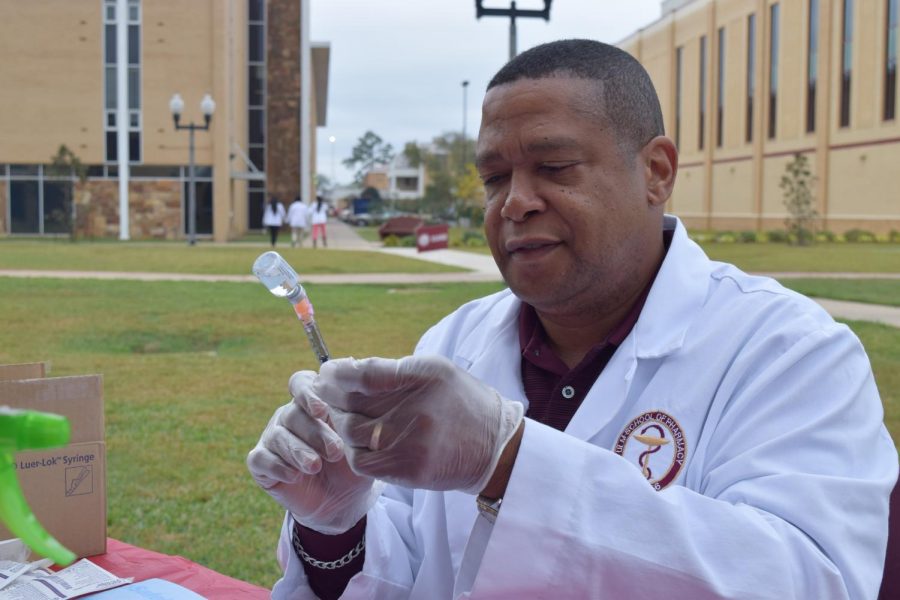Students prepare for most active flu season on record
Flu season is among us. ULM students and the country brace for impact as this year’s flu season is hitting the country harder than normal.
The harsh flu season also brings back the debate on vaccinations and their effectiveness.
The Influenza virus, or flu for short, has its yearly season during the “colder” half of the year.
The season usually begins in early October and ends around mid-April.
During flu season, there are two major types of viruses that are responsible for the majority of the reported cases of flu, type “A” and type “B.” There is a type “C” virus, but it is very rare.
ULM students prepped early for the flu this season.
Thursday Nov. 9, APhA, or the American Pharmacists Association-Academy of Student Pharmacists put on a “Free Flu Clinic” in collaboration with the Student Government Association.
The event had a great turn out, but many ULM students missed their opportunity to get a free flu shot.
Some ULM students like the rest of the world are unsure of flu shots and their effectiveness.
“I could feel that the shot definitely made me immune to some strains of viruses, while I understand that it doesn’t protect us from all strains. Kudos to the ULM pharmacy for putting it on us,” Pujan Dahal, a junior computer information systems major said.
Many ULM students have yet to get a flu shot.
When given the option, there are those who decide against the shot based on a strong immune system. Others don’t feel the shot works or it’s rate of effectiveness is too low.
A nasal spray alternative to the regular flu shot gained popularity for it’s ease of use and lack of needles.
Sadly, the nasal spray alternative wasn’t recommended by the Center for Disease Control and Prevention after 2016.
For some ULM students, a flu shot is required.
Pharmacy and nursing students are required to get an annual flu shot before the regular season begins in October.
Students in these schools claim the earlier you get your vaccination the better the results will be for you when exposed to the flu virus.
Susan Egbert, a third-year pharmacy student says the pharmacy school strictly requires all of their students to have a vaccination.
“I got my shot very early (in August), I’ve learned that the earlier you can get it, the better the chance that you won’t get it,” Egbert said.
Egbert also pointed out how grateful she was for the added protection since three of her family members caught the flu, and although she was around them she didn’t catch the flu.
Brittany Stagg, a senior nursing student, believes in the effectiveness of the vaccine even if still struck by the virus.
“I had to get it, but the flu vaccine even when for the wrong strain helps lessen symptoms and length if one were to get the flu,” Stagg said.
According to the Center for Disease Control and Prevention’s tracking system, the flu is now widespread among the continental US.
This is the first time this has happened since the current tracking system has been in place.
The tracking system has been in place for over 13 years.
Hospitals and are urging those still unaffected to take extra precautions.
The main preventative measure doctors recommend is a flu shot taken early in the season.
Other than that, reducing the number of germs you’re exposed to is the next best option.
Washing your hands, disinfecting surfaces and avoiding others with the disease are some of the best things you can do to avoid catching the flu.
If you become sick, stay hydrated. When you have a fever wait for it to diminish and don’t leave the house until 24 hours have passed since you had a fever. Graphic by Siddharth Gaulee









